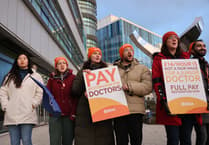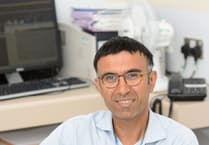SOUTH East Coast Ambulance Service NHS Foundation Trust (SECAmb) is asking for the public’s continued support over what is expected to be a busy Easter Bank Holiday weekend.
The Trust is urging people to use its service wisely and to seek alternatives to 999 if they are not facing a life-threatening or serious emergency.
Last year, the Trust handled close to 10,000 calls in its Emergency Operations Centres and sent a response to more than 7,700 incidents (April 14 – April 17 2017). The Trust’s NHS 111 service was also in high demand with call volume in excess of 22,000 across the four days.
The high demand will see the Trust working hard to prioritise its response to patients with the greatest need. However, people not facing a serious or life-threatening emergency could wait longer for a response. Those not in a serious condition are urged to seek alternatives to 999 including calling NHS 111, visiting a walk-in centre or speaking to a pharmacist.
People are also reminded to order any repeat prescriptions in time for the weekend and check the opening hours of local pharmacies. Easter opening hours for community pharmacies in the South East can be found via the following link: www.england.nhs.uk/south-east/our-work/info-professionals/pharmacy/change-of-opening-hours/ with details for nearest pharmacies available at www.nhs.uk
The Trust would also like to remind people to keep an eye on vulnerable friends, relatives or neighbours.
SECAmb executive director of operations Joe Garcia said: “The four-day Easter weekend is always a busy time for ambulance services so people can really help us by preparing ahead of the weekend. We’ll be prioritising our response to those in the greatest need and our staff and volunteers will be working hard to get people the help they need as quickly as possible. Those not facing a serious or life-threatening situation may have to wait longer or seek alternatives to an ambulance response and we request their understanding.
“People can really help us by remembering to make use of alternatives to 999 including calling NHS 111, where our staff will also be working hard to provide people with the assistance they need.”
When to call 999:
If you think a patient is suffering from one of the following you must dial 999 for an ambulance:
heart attack (e.g. chest pain for more than 15 minutes).
Sudden unexplained shortness of breath or heavy bleeding.
Unconsciousness (even if the patient has regained consciousness).
Traumatic back/spinal/neck pain
You should also call for an ambulance if:
You think the patient’s illness or injury is life-threatening.
You think the illness or injury may become worse, or even life-threatening on the way to the hospital.
Moving the patient/s without skilled people could cause injury.




